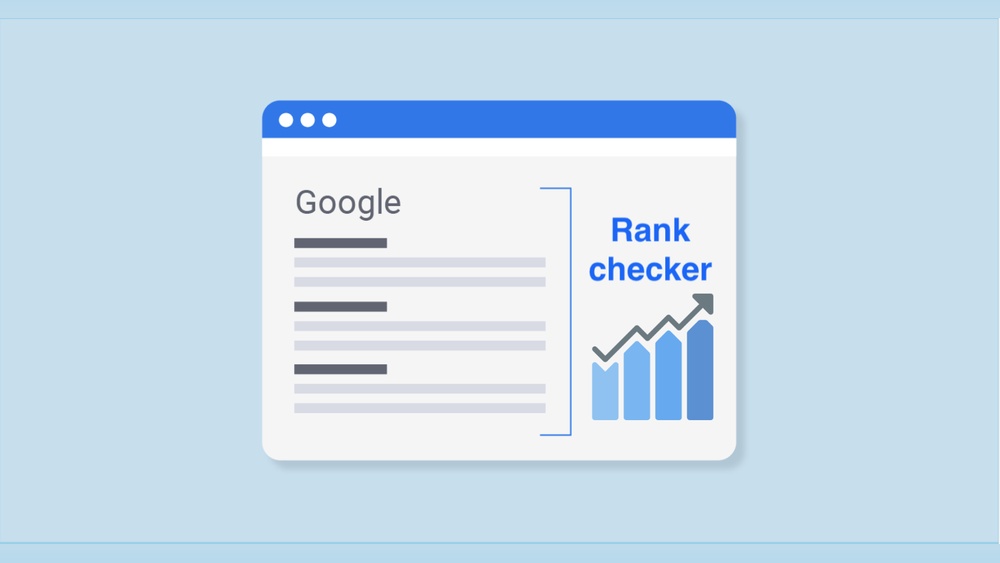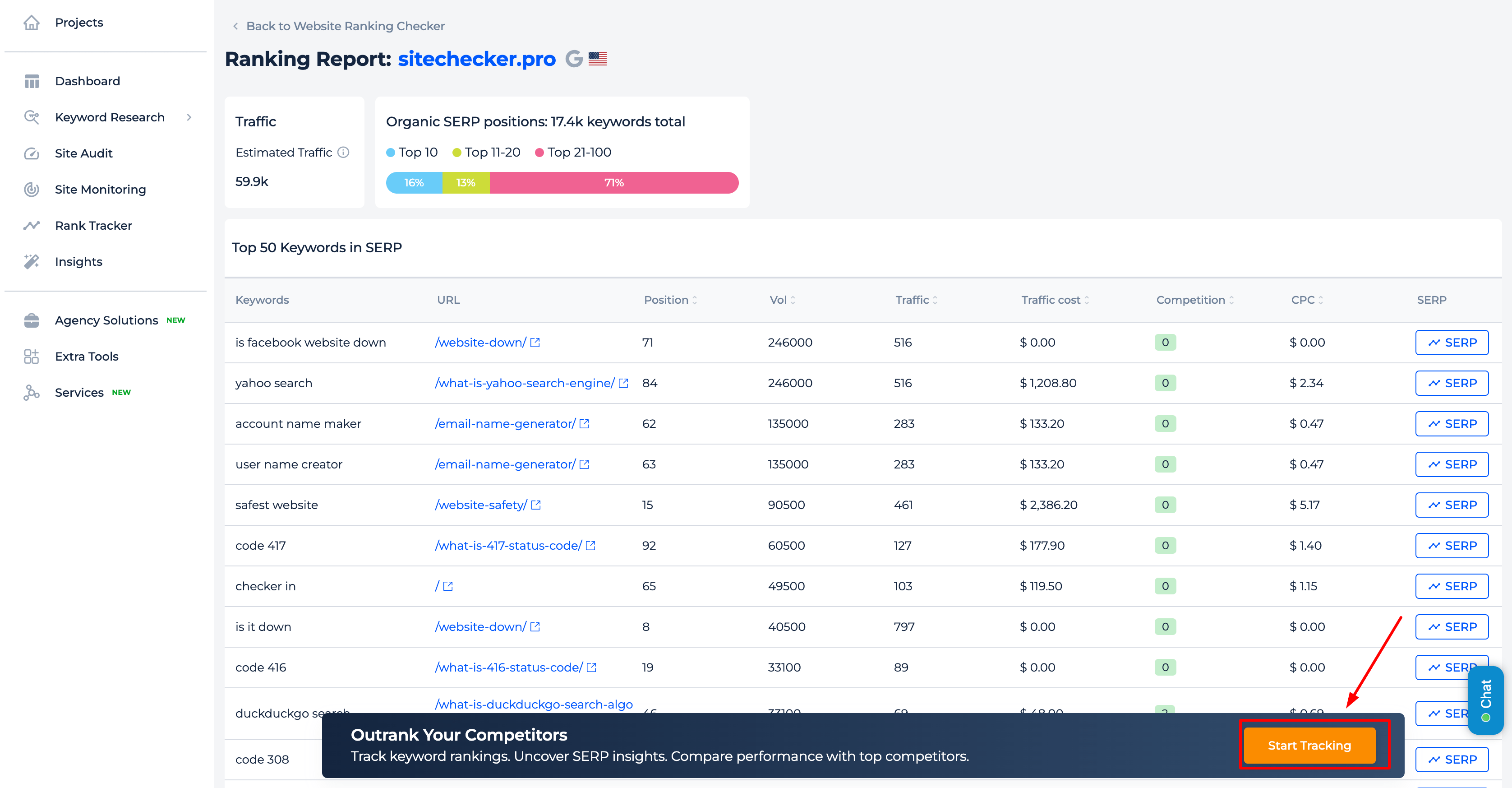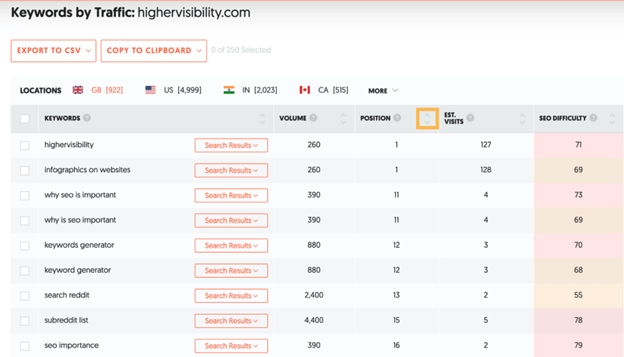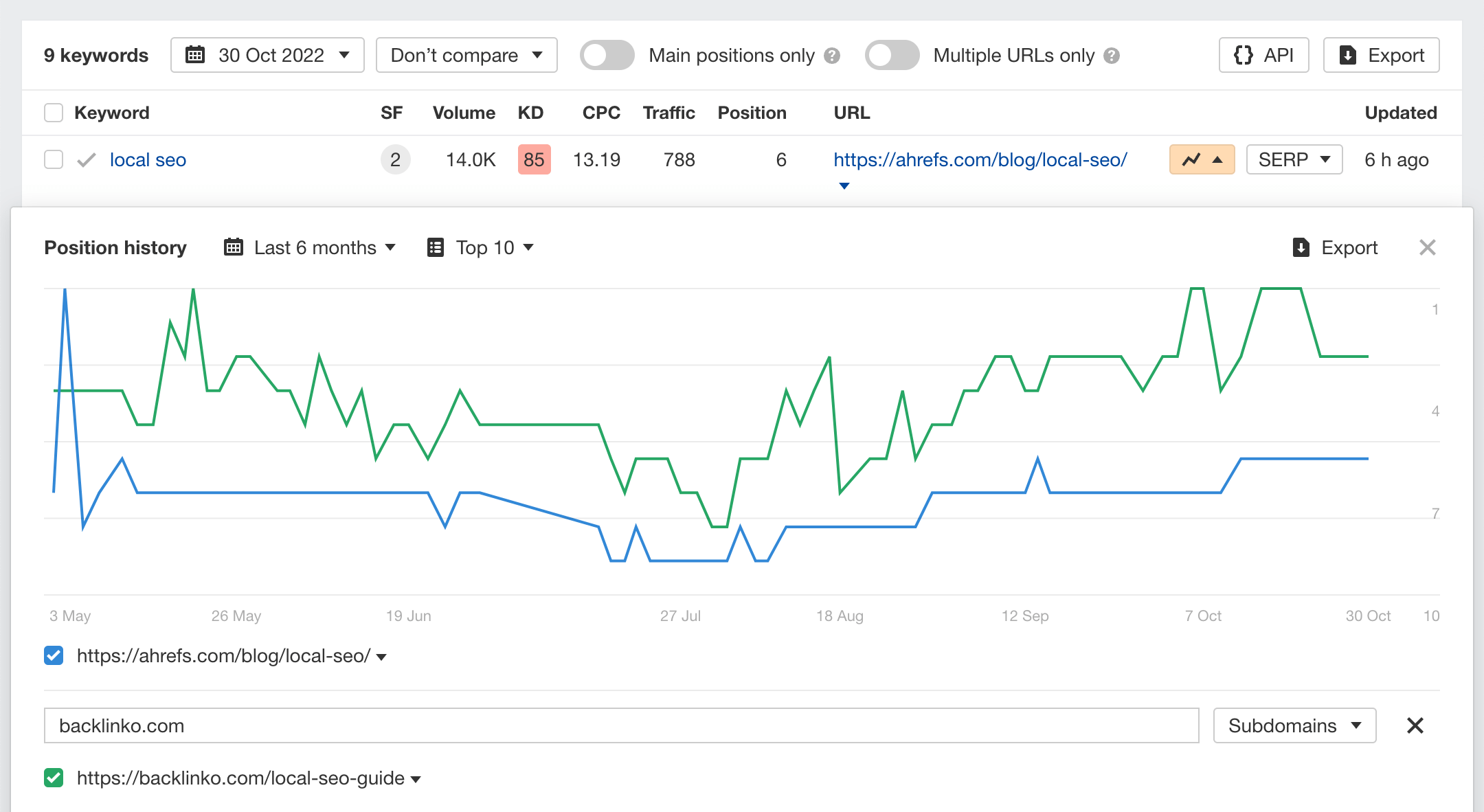
Website Ranking: Boost Your Site with Proven SEO Strategies
Have you ever wondered why some websites always show up at the top of search results while others barely get noticed? Your website’s ranking can make all the difference between attracting visitors or being lost in the crowd.
Imagine your site appearing right where your customers are looking—how much more traffic and sales could you gain? You’ll discover simple yet powerful ways to improve your website ranking. By the end, you’ll know exactly what steps to take to boost your visibility and get ahead of your competition.
Keep reading, because your website deserves to be seen.
Seo Basics
Understanding the basics of SEO is important for website ranking. SEO helps search engines find and rank your site. It makes your website easier to see and use. Good SEO brings more visitors and grows your online presence.
How Search Engines Work
Search engines use bots to crawl the web. They read pages and gather information. This process is called indexing. When someone searches, the engine looks through the index. It shows the best results based on relevance and quality.
Search engines want to give users useful answers. They check many signals to decide which pages rank higher. The goal is to match the search intent quickly and clearly.
Key Ranking Factors
Several factors affect your website’s rank. Content quality is one of the most important. Clear, helpful, and original content ranks better. Keywords also play a role. They must fit naturally in your text.
Site speed matters too. Faster sites keep users happy. Mobile-friendliness is essential since many use phones. Backlinks from trusted sites improve authority. User experience, like easy navigation, helps keep visitors engaged.
Keyword Research
Keyword research is the foundation of good website ranking. It helps to find the words people use in search engines. Using the right keywords brings more visitors to your site. This section explains how to find and use keywords well.
Finding High-value Keywords
High-value keywords have many searches but low competition. They bring more visitors and are easier to rank for. Start by listing words related to your topic. Think about what users want and how they search. Use these ideas to find keywords that match your content.
Long-tail Vs Short-tail Keywords
Short-tail keywords are broad and short. They have many searches but are very competitive. Long-tail keywords are longer and more specific. They have fewer searches but attract users ready to act. Use a mix of both to reach more people and get better results.
Using Keyword Tools
Keyword tools help find and analyze keywords fast. They show search volume, competition, and trends. Popular tools include Google Keyword Planner and Ubersuggest. Use them to pick keywords that fit your content and audience. This saves time and improves your website ranking.
On-page Seo
On-Page SEO is a key part of improving your website ranking. It involves optimizing elements on your web pages. These changes help search engines understand your content better. They also improve the user experience. This section covers important techniques to enhance your on-page SEO.
Optimizing Title Tags And Meta Descriptions
Title tags tell search engines what your page is about. Keep titles clear and include important keywords. Make titles between 50 to 60 characters long. Meta descriptions appear under the title in search results. Write descriptions that explain the page content simply. Use keywords naturally. Meta descriptions should be around 150 to 160 characters.
Content Quality And Relevance
Content must be useful and answer visitors’ questions. Write in short sentences and simple words. Avoid repeating the same ideas often. Keep content focused on the main topic. Use keywords thoughtfully, not too much. Fresh and updated content attracts more visitors and search engines.
Url Structure Best Practices
URLs should be short and easy to read. Use words that describe the page content. Separate words with hyphens, not underscores. Avoid long strings of numbers or symbols. Clear URLs help users and search engines understand pages quickly.
Internal Linking Strategies
Linking pages within your website helps visitors find related content. Use descriptive anchor text that matches the linked page topic. Internal links spread page authority across your site. This helps improve rankings for multiple pages. Check links regularly to avoid broken links.

Technical Seo
Technical SEO is the foundation of a strong website ranking. It involves optimizing the backend of your site. This helps search engines understand and index your content better. Good technical SEO improves user experience and site performance. It makes your website faster, easier to navigate, and more accessible on all devices.
Improving Site Speed
Site speed is crucial for ranking well on search engines. Fast-loading pages keep visitors engaged. Reduce file sizes for images and scripts. Use caching to store frequently accessed data. Choose a reliable hosting provider. Test your site speed regularly using online tools. A faster site means better rankings and happier visitors.
Mobile Optimization
More users browse on mobile devices than desktops. Mobile optimization ensures your site works well on phones and tablets. Use responsive design to adapt layouts. Make buttons easy to tap. Keep text readable without zooming. Check your site on different screen sizes. Mobile-friendly sites rank higher in search results.
Fixing Crawl Errors
Crawl errors stop search engines from indexing your pages. They can be broken links, missing pages, or server issues. Use tools like Google Search Console to find errors. Fix or remove broken links quickly. Ensure your robots.txt file allows search engines to access your site. A clean crawl report improves your site’s visibility.
Using Structured Data
Structured data helps search engines understand your content better. It uses special code to label parts of your site. This can include reviews, events, or products. Adding structured data can enhance your search listings with rich snippets. Use schema.org vocabulary for accuracy. Proper structured data boosts your website’s appearance in search results.
Off-page Seo
Off-Page SEO plays a vital role in improving website ranking. It focuses on actions outside your website that impact your search engine position. These strategies help build your site’s reputation and authority. Search engines trust websites that others link to and talk about.
Effective Off-Page SEO increases your site’s visibility and drives more organic traffic. It shows search engines that your content is valuable and relevant. Let’s explore key elements of Off-Page SEO that boost your website’s ranking.
Building Quality Backlinks
Backlinks are links from other websites to yours. Quality backlinks signal trust and authority to search engines. Not all backlinks are equal. Links from reputable, relevant sites hold more value. Focus on earning backlinks naturally through great content and outreach. Avoid spammy or low-quality links. They can harm your ranking.
Social Media Signals
Social media signals come from shares, likes, and comments on platforms like Facebook and Twitter. These signals show your content’s popularity. Active social media presence helps spread your content widely. It drives traffic and builds brand awareness. Search engines consider social signals as a sign of trust.
Guest Blogging Benefits
Guest blogging means writing articles for other websites. It helps you reach new audiences and gain backlinks. Choose blogs that relate to your niche. Provide useful and original content. This builds your credibility and authority. Guest blogging also creates connections with other bloggers and website owners.

Content Marketing
Content marketing plays a key role in improving website ranking. It helps attract more visitors by providing useful and interesting information. Good content keeps readers on your site longer. This signals to search engines that your site is valuable. Consistent content also builds trust with your audience. Quality content can lead to more shares and backlinks. These factors boost your site’s authority and rank.
Creating Engaging Content
Focus on topics that matter to your audience. Use clear and simple language. Break information into short paragraphs and lists. Add questions to make readers think. Use examples and stories to explain ideas. Make content helpful and easy to use. Avoid jargon or complex words. Write with a friendly and conversational tone. Check grammar and spelling for a clean read.
Content Promotion Techniques
Share content on social media platforms. Use email newsletters to reach subscribers. Collaborate with influencers or bloggers. Post in online groups related to your niche. Use paid ads for wider reach. Encourage readers to share your content. Respond to comments and engage with users. Keep a regular posting schedule to stay visible.
Updating And Repurposing Content
Review old content to keep it current. Add new information and fix errors. Change formats like turning articles into videos. Create infographics or slide presentations. Use parts of content for social media posts. Combine smaller posts into a detailed guide. Repurposing saves time and extends content life. It helps maintain steady traffic and rankings.
Tracking And Analytics
Tracking and analytics are essential for improving website ranking. They show how visitors interact with your site. Data helps you understand what works and what needs change.
Regular tracking allows quick responses to trends. Analytics reveal which pages attract visitors. They also point out where users leave your site. This information guides better decisions and boosts your ranking.
Using Google Analytics
Google Analytics is a free tool to track website traffic. It shows how many visitors come to your site daily. You can see which pages they visit and how long they stay. It also tracks user behavior and conversions. This data helps identify strong and weak areas on your site.
Monitoring Keyword Rankings
Keywords drive search engine traffic. Monitoring keyword rankings shows your site’s position in search results. Tracking changes in rankings helps assess SEO success. It highlights which keywords need more focus. Consistent monitoring keeps your SEO efforts on track.
Adjusting Strategies Based On Data
Data from tracking tools guides your SEO strategy. If a page has low traffic, update its content. Improve keywords that do not perform well. Use analytics to test different approaches. Adjustments based on real data lead to better results over time.

Common Seo Mistakes
Many websites fail to rank well because of common SEO mistakes. These errors reduce a site’s visibility and traffic. Fixing these issues can improve search engine rankings and user experience.
Understanding these mistakes helps avoid setbacks in your SEO efforts. Let’s explore some frequent errors that hurt website ranking.
Keyword Stuffing
Keyword stuffing means using the same keywords too many times. It makes content hard to read and looks spammy to search engines. Instead, use keywords naturally and focus on quality content.
Ignoring Mobile Users
Many users visit websites on phones. A site not optimized for mobile loses visitors quickly. Mobile-friendly design improves user experience and boosts search engine ranking.
Duplicate Content Issues
Duplicate content means having the same text on multiple pages. Search engines get confused and may lower rankings. Create unique content for each page to avoid this problem.
Frequently Asked Questions
What Factors Influence Website Ranking On Search Engines?
Website ranking depends on factors like content quality, backlinks, site speed, mobile-friendliness, and user experience. Search engines prioritize relevant, trustworthy, and fast-loading websites for better rankings.
How Does Seo Improve Website Ranking?
SEO optimizes website elements such as keywords, meta tags, and site structure. This helps search engines understand content better and improves visibility, driving more organic traffic.
Why Is Mobile Optimization Important For Ranking?
Mobile optimization ensures your site works well on smartphones and tablets. Since most users browse on mobile, search engines rank mobile-friendly sites higher for better user experience.
How Do Backlinks Affect Website Ranking?
Backlinks from reputable sites signal trust and authority to search engines. Quality backlinks improve your site’s credibility and boost its ranking in search results.
Conclusion
Website ranking depends on many small but important steps. Quality content and good links help a lot. Fast loading times keep visitors happy. Mobile-friendly design reaches more users every day. Regular updates show search engines your site is active. Tracking your progress helps improve results.
Keep learning and adjusting your strategies often. Success takes time, patience, and steady effort. Focus on these basics to see steady growth. Your website can reach higher ranks with care.



